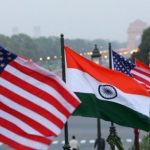Dual role for Gor and influential policy post for Kapur underline India’s importance in the Indo-Pacific balance.
WASHINGTON — In a move underscoring Washington’s strategic focus on South Asia, the U.S. Senate on Thursday (September 18) confirmed Sergio Gor as the next U.S. Ambassador to India and S. Paul Kapur as Assistant Secretary of State for South and Central Asian Affairs. Both appointments are expected to have far-reaching implications for U.S.-India relations and the broader regional balance.
Gor, a close aide to President Donald Trump, will also serve as Special Envoy for South and Central Asia—an unusual dual role that signals the administration’s intent to elevate India’s place in American foreign policy. His confirmation comes at a delicate time: New Delhi and Washington have faced strains over trade tariffs and India’s purchase of Russian oil, even as they deepen security cooperation through the Quad.
For India, Gor’s appointment is being read as a political message as much as a diplomatic one. By sending a trusted confidant to New Delhi, the Trump administration is attempting to restore momentum in a partnership widely viewed as central to U.S. strategy in the Indo-Pacific. When Gor was nominated, India’s ambassador to Washington, Vinay Kwatra, welcomed the move as a reflection of the “priority of India-U.S. ties.”
Kapur’s confirmation is equally significant. An Indian-American academic known for his critical stance on Pakistan and emphasis on countering Chinese influence, he has long argued that Washington and New Delhi share a convergence of interests in maintaining a “free and open Indo-Pacific.” His role at the State Department is expected to shape not only bilateral ties but also America’s approach to South Asia as a whole.
The speed of these confirmations was made possible by a Republican rule change last year, which allows the Senate to approve large blocs of nominees in a single vote. For India, however, the procedural backdrop is less relevant than the signal being sent: that Washington is willing to invest political capital in deepening ties at a time of shifting global alignments.
As India navigates its complex relations with Russia, China, and the United States, the new appointments suggest that Washington intends to keep New Delhi close at the center of its Asia strategy.
